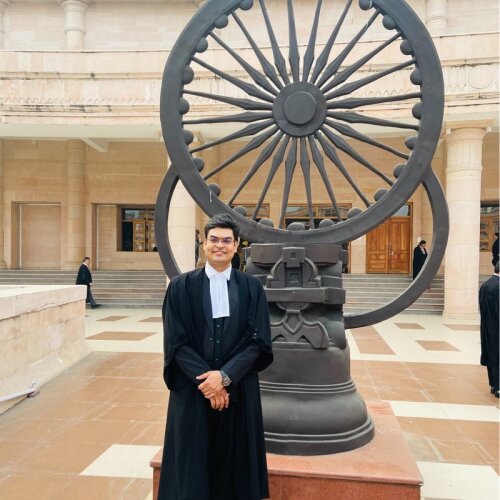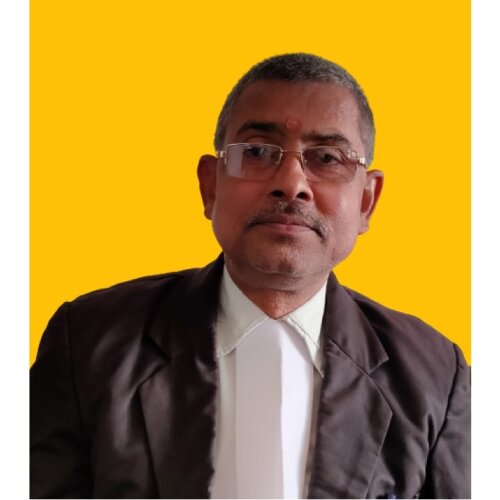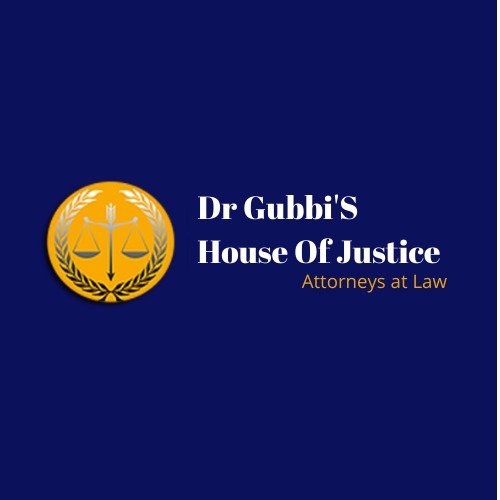Best Probate Lawyers in India
Share your needs with us, get contacted by law firms.
Free. Takes 2 min.
Or refine your search by selecting a city:
List of the best lawyers in India
India Probate Legal Questions answered by Lawyers
Browse our 1 legal question about Probate in India and read the lawyer answers, or ask your own questions for free.
- Partition of property
- Class 2 heir (Father) is not listed as a family member in the sale agreement of the property due to his absence during the registration in the past. During partition, will he be eligible to receive his share of the property jointly owned by class 1 - wife (deceased), 3... Read more →
-
Lawyer answer by Remedium Reel Attorneys
If there's no Will, then survivors are to appoint 2 or 3 person's to obtain letter of administration at the Probate Registry which would give them the power to be able to administer the property in line with the wishes...
Read full answer
About Probate Law in India
Probate is a legal process through which a deceased person's will is validated by a court. In India, Probate proceedings fall under the Indian Succession Act, 1925, and are essential for ensuring the legal execution of the decedent's wishes regarding asset distribution. Probate certifies the authenticity of the will and grants authority to the executor to manage and distribute the deceased's assets as prescribed. It is particularly necessary in cases where substantial assets are involved or where the will might be contested.
Why You May Need a Lawyer
There are several situations where legal assistance might be necessary in Probate matters:
- Complex Estate: If the estate involves a variety of assets and properties, navigating legal nuances may require professional assistance.
- Contested Will: If parties are contesting the will's validity, a lawyer can help represent and defend your interests.
- Legal Compliance: Ensuring the estate's distribution complies with Indian succession laws can be complicated, necessitating legal guidance.
- Debt Settlement: A lawyer can help ensure any debts or liabilities of the estate are settled before distribution.
- Dispute Resolution: Expertise is required to resolve conflicts between heirs or between executors and beneficiaries.
Local Laws Overview
Probate laws in India, primarily under the Indian Succession Act, detail who can apply for Probate, how it is granted, and its legal implications.
- Applicable To: Primarily applies to wills made by citizens and individuals owning property in India.
- Application Process: Applications for Probate need to be made to the relevant district court or high court.
- Executor's Role: The executor named in the will must apply for Probate to distribute the estate legally.
- Public Notification: Public notices are posted to allow for contesting claims.
- Regional Variations: Some states like West Bengal and certain union territories mandate Probate for wills even when uncontested.
Frequently Asked Questions
What is Probate?
Probate is the judicial process whereby a will is validated and authenticated by a court, allowing for distribution of the deceased’s assets as stipulated in the will.
Do all wills require Probate in India?
No, not all wills require Probate. However, it is necessary to obtain Probate in certain states such as West Bengal, or if the will is contested.
How long does the Probate process take?
The duration can vary depending on the complexity of the estate and whether there are any disputes, ranging from a few months to several years.
What happens if someone contests the will?
If a will is contested, the Probate process can extend as the validity of the will is examined in detail by the court.
Can Probate be avoided?
Some assets can bypass Probate when they pass directly to beneficiaries or are held jointly, but typically Probate is necessary for clear legal transfer of assets.
Who is responsible for applying for Probate?
The executor named in the will is responsible for applying for Probate. If no executor is specified, a beneficiary or interested party may apply.
What documents are needed for the Probate process?
Key documents include the original will, applicant identification, death certificate, notices to heirs, and the application petition.
Are there any costs associated with obtaining Probate?
Yes, costs can include court fees, legal fees, and other administrative expenses, which vary based on the estate size and complexity.
What if there is no will?
If there is no will, the estate is distributed according to the Indian Succession Act, which outlines rules for intestate succession.
Is Probate valid nationally once granted?
Yes, once Probate is granted, it is valid across India, allowing the executor to act in accordance with the will countrywide.
Additional Resources
For further assistance and information, consider consulting the following resources:
- Ministry of Law and Justice - for legislative insights.
- Local Bar Associations - can guide you to qualified Probate lawyers.
- Legal Aid Services - for free or low-cost assistance depending on your eligibility.
- District Court Offices - can provide forms and procedural assistance.
- Government websites - for authentic and updated information.
Next Steps
If you need legal assistance for Probate, consider the following steps:
- Consult With a Lawyer: Seek specialist legal advice to understand your situation better and the possible outcomes.
- Gather Necessary Documentation: Collect essential documents such as wills, property titles, and identification papers.
- File Application: Work with your lawyer to file the Probate application in the appropriate court.
- Attend Hearings: Be prepared to attend court hearings as required during the process.
- Compliance: Follow all legal directives and comply with notices to ensure a smooth Probate process.
Lawzana helps you find the best lawyers and law firms in India through a curated and pre-screened list of qualified legal professionals. Our platform offers rankings and detailed profiles of attorneys and law firms, allowing you to compare based on practice areas, including Probate, experience, and client feedback.
Each profile includes a description of the firm's areas of practice, client reviews, team members and partners, year of establishment, spoken languages, office locations, contact information, social media presence, and any published articles or resources. Most firms on our platform speak English and are experienced in both local and international legal matters.
Get a quote from top-rated law firms in India — quickly, securely, and without unnecessary hassle.
Disclaimer:
The information provided on this page is for general informational purposes only and does not constitute legal advice. While we strive to ensure the accuracy and relevance of the content, legal information may change over time, and interpretations of the law can vary. You should always consult with a qualified legal professional for advice specific to your situation.
We disclaim all liability for actions taken or not taken based on the content of this page. If you believe any information is incorrect or outdated, please contact us, and we will review and update it where appropriate.
Browse probate law firms by city in India
Refine your search by selecting a city.
















